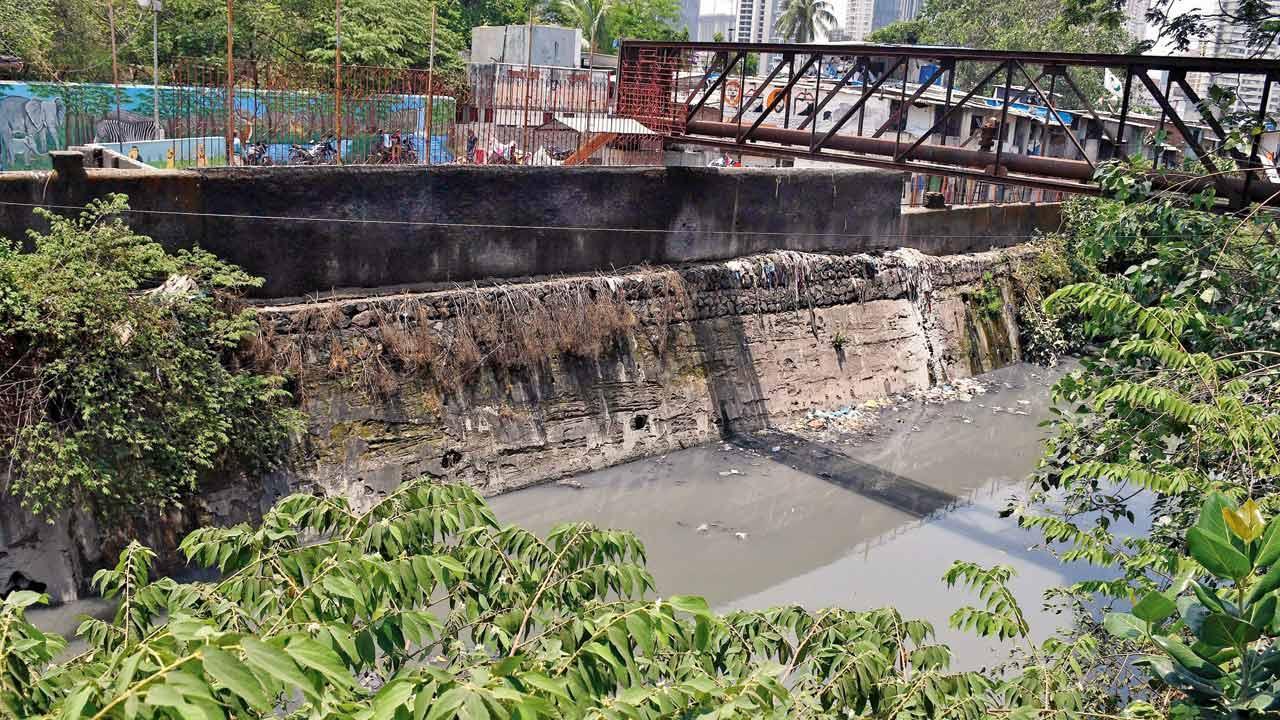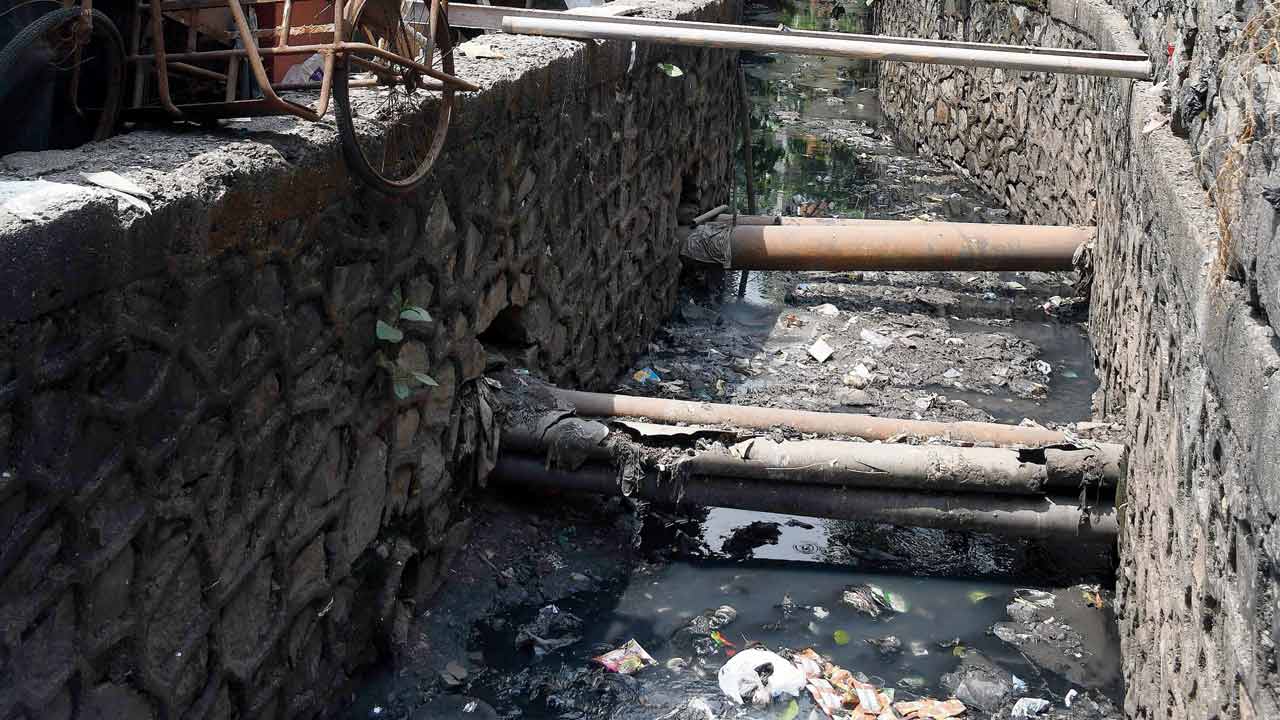Sewage water analysis is important when testing numbers are low, will help understand prevalence in community; officials now await National Institute of Virology analysis

A civic official said ICMR, along with BMC, has been conducting sewage water surveillance for Covid-19 every month. But, the BMC was not getting the report. Pic/Ashish Raje
The civic body has asked the ICMR to share the relevant data after the Union health minister said that Coronavirus RNA was found in sewage water of Mumbai. A genome sequencing report will give us a clear picture on the status of the virus and its strains in the city, and assist us in making strategies, if needed, to curb the spread, officials said on Sunday.
Requesting anonymity, a senior official of BMC’s health department said, “On Saturday, Union Health Minister Mansukh Mandaviya met the Indian SARS-CoV-2 Genomics Consortium (INSACOG). In the meeting, it was revealed that the RNA of SARS-CoV-2 has been found in sewage samples from Delhi and Mumbai, and the positivity rate was high.
“In collaboration with the Indian Council of Medical Research (ICMR), the BMC has been conducting monthly surveillance of sewage water, but we have not been getting the report or outcome. So we have asked ICMR’s National Institute of Virology (NIV) in Pune for the report. If the prevalence of the virus is high, there might be a rise in Covid-19 cases; however, we are not sure yet,” the official added.

The sewage samples are tested by ICMR in collaboration with the BMC. Representation Pic/Ashish Raje
BMC’s Executive Health Officer Dr Mangala Gomare said, “Testing of the sewage water is a routine process to know the presence of the virus. However, if the prevalence is high, then we have to be on alert mode. There might be a chance that cases may increase slightly.”
Also Read: Covid-19: We must prepare for the worst, say experts
“If we look at our genome sequencing report, no new variant has been found yet. So, I think Mumbaikars don’t need to panic. We have asked all the hospitals to test patients with influenza-like illness and severe acute respiratory infections for Covid-19,” she added.
“On December 27, we are going to conduct a mock drill to check our preparedness, like the availability of beds, oxygen plants, ventilators, human resources and other necessities required to tackle Covid-19. We have experience of the past three waves so it won’t take much time to ramp up infrastructure,” she said.
A senior NIV official told mid-day that the sewage water surveillance is important in case there are no or low tests for Covid-19. “It helps us know whether the virus is still in circulation in the community and what variants are dominating the area. Suppose, we are getting a particular variant often, then we have to correlate and see whether there is a rise in infection, hospitalisation and deaths.”
Nasal vaccine rules
Issuing guideline on the usage of intranasal vaccine—iNCOVACC, the state health department said population aged 18 years and above can take it as a primary dose. Those who took second dose of Covaxin or Covishield can also take iNCOVACC as a booster shot. The first and second doses are to be taken at an interval of 28 days, it added. Doses per beneficiary—0.5ml per dose in 8 drops (4 drops in each nostril)
 Subscribe today by clicking the link and stay updated with the latest news!" Click here!
Subscribe today by clicking the link and stay updated with the latest news!" Click here!








